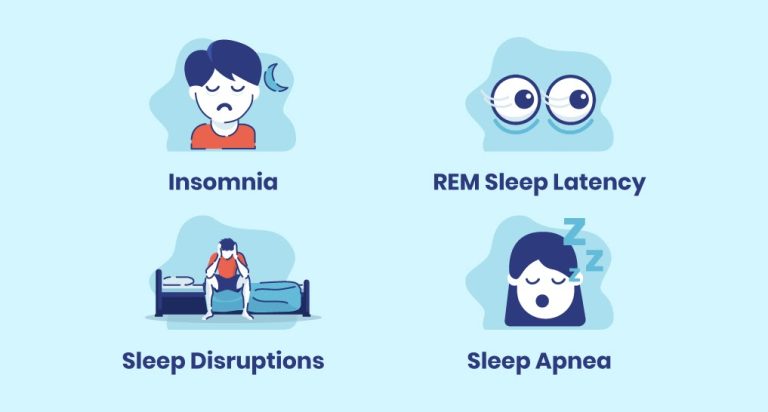Trying Contraceptives for the First Time? Here’s What You Need to Know

When it comes to family planning strategies, it’s essential that individuals are able to make informed choices that match their needs and preferences.
According to recent statistics, an increasing number of individuals are opting for contraceptives to plan their families. The WHO states that over the last two decades, 200 million more women have started using contraceptives.
Thus, it is imperative to delve into the details of various contraceptive methods, considering factors such as cost, effectiveness, and potential side effects, to make choices that resonate with individual lifestyles.
With over 65% of women in America claiming to use contraceptives, it is vital that the facts are clear. Health care, especially when related to reproduction, is rife with misconceptions online. Hopefully, this article will make things a little clearer for those about to start using contraceptives.
The Basics: What Are Contraceptives?
For those new to the world of contraceptives, understanding what they are and how they work is important. Only when you understand their purpose can you start making informed decisions for your specific needs.
At their core, contraceptives refer to a diverse range of methods and devices designed to prevent unintended pregnancies. The primary goal is to empower individuals or couples to make choices about whether and when to have children.
Contraceptives are not a one-size-fits-all solution; instead, they encompass a range of options, each catering to different preferences, lifestyles, and health considerations.
Typically, the two main categories of contraceptives are hormonal and barrier methods. Other options like sterilization, abstinence, and fertility awareness exist, but they aren’t what most people have in mind when they think of birth control.
It can feel overwhelming to choose the right contraceptive out of the many options available, but it’s not as complicated as it seems. Let’s explore further.
What Are The Most Effective Contraceptives?
Among the variety of contraceptive methods out there, hormonal options tend to offer a high level of effectiveness when used correctly. These methods work by altering hormone levels in the body to prevent ovulation and interfere with the sperm’s ability to reach the egg.
Research indicates that when adhered to consistently, hormonal contraceptives boast success rates upwards of 90%. Many people fail to use them correctly, or their effectiveness would be closer to 99%.
Understanding the mechanisms and requirements of hormonal contraceptives is crucial for maximizing their effectiveness. Educating individuals on the importance of consistent usage and the potential impact of factors like medication interactions enhances user compliance, reinforcing the efficacy of these methods.
Likewise, long-acting reversible contraceptives (LARCs) are another popular option. These include intrauterine devices (IUDs) and contraceptive implants, which, once in place, provide long-term protection against unintended pregnancies.
They tend to have success rates exceeding 99%, which makes them one of the most effective contraceptive options you can use. They also last up to 10 years, and only 1 in 100 women end up conceiving when on IUDs.
For those wanting maximum protection, combination methods are a good idea. For instance, using condoms in conjunction with hormonal contraceptives provides a dual approach, offering both hormonal and barrier protection.
This combination not only increases the overall success rate but also adds a layer of defense against sexually transmitted infections (STIs).
Are There Any Safety Considerations to Be Aware of?
In recent years, IUDs have gained popularity for their effectiveness and long-term contraceptive benefits. These small devices, inserted into the uterus, provide reliable protection against unintended pregnancies. However, it’s important to note that, like any medical intervention, they are not without safety concerns.
Legal actions and lawsuits against certain brands that manufacture IUDs have underscored the importance of due diligence. The Paragard lawsuit cases are worth mentioning in this context.
According to TorHoerman Law, a number of women have complained that Paragard IUD devices fractured and broke during removal. The health consequences of such incidents can be serious and surgery will often be required.
Similarly, hormonal contraceptives come with potential side effects that merit consideration. Common side effects of hormonal contraceptives include nausea, changes in mood, and fluctuations in weight.
That being said, it’s important to remember that these effects are often temporary and vary from person to person.
Common Misconceptions Regarding Contraceptives
Over time, it’s inevitable that myths and urban legends emerge around contraceptives. Unfortunately, they have the power to mislead and influence the decisions that people make. Let’s look at some of them.
Myth 1: Contraceptives Lead to Infertility
One prevailing myth suggests that using contraceptives, especially hormonal methods, may lead to long-term fertility issues. It’s crucial to dispel this notion. Contraceptives do not cause infertility.
Their primary purpose is to temporarily prevent unintended pregnancies. Once discontinued, fertility typically returns to its natural state, allowing individuals to conceive when ready.
Myth 2: Birth Control Pills Cause Weight Gain
The belief that birth control pills inevitably lead to weight gain is a persistent myth. Research indicates that there’s no substantial evidence linking contraceptive pills directly to weight gain.
WebMD states that, while it’s rare, weight gain can happen for some women when on birth control pills. However, this is mainly due to fluid retention. A review of more than 44 studies revealed no connection between weight gain and contraceptive use for the majority of women.
Myth 3: Birth Control Is Only the Woman’s Responsibility
Contraception is a shared responsibility. While women have a wider range of contraceptive options, it’s essential to recognize that men also play a crucial role. Condoms, for example, offer a male-controlled method of contraception, emphasizing the importance of shared decision-making in family planning.
Conclusion
As you begin your journey in reproductive health, keep yourself updated on recent developments and take the initiative to research the credibility of contraceptive brands. Remember that the safety landscape is constantly evolving, with ongoing advancements aimed at improving contraceptive options. After all, the more educated you are on contraceptives, the better you can confidently make the right decisions regarding pregnancy.






